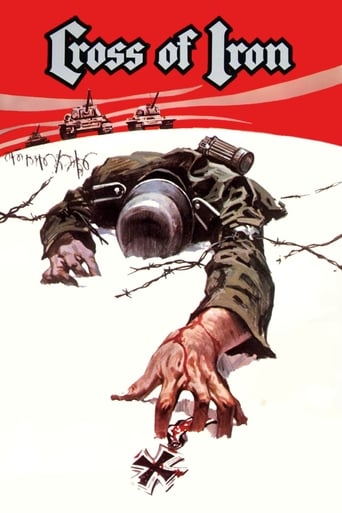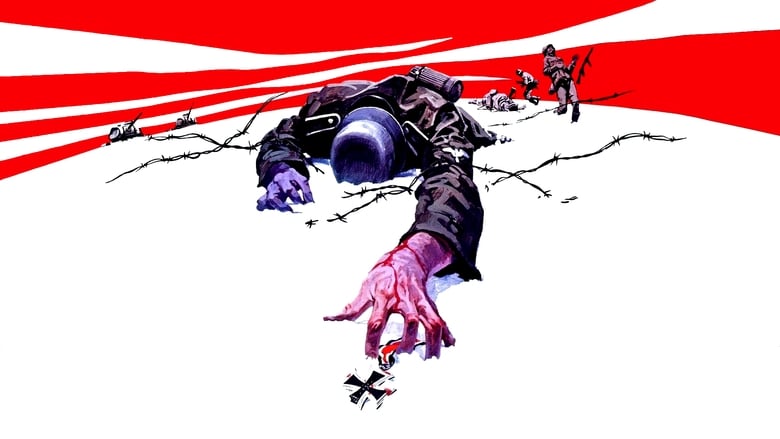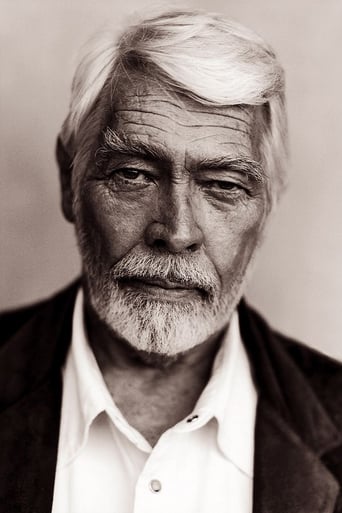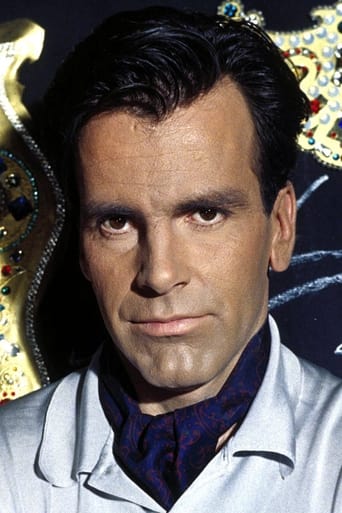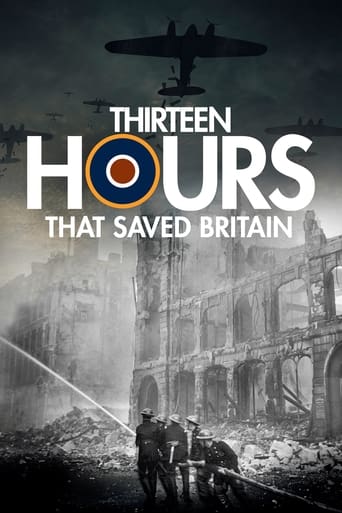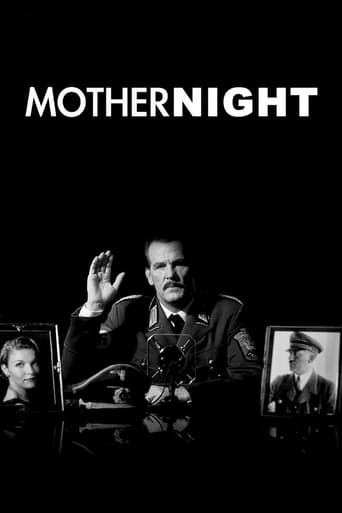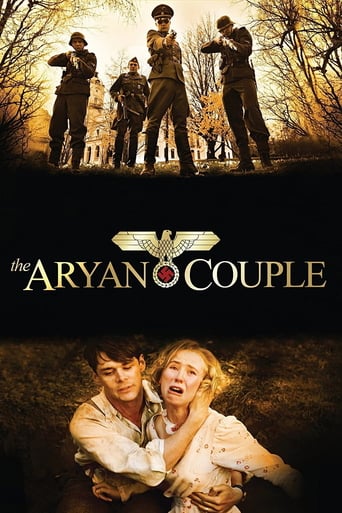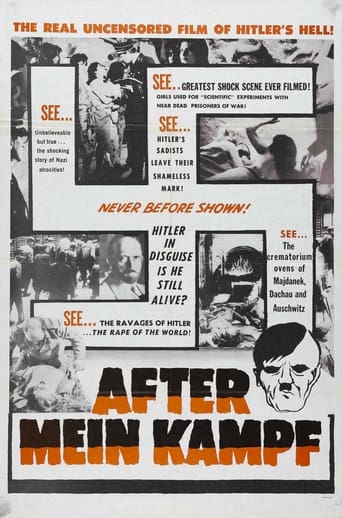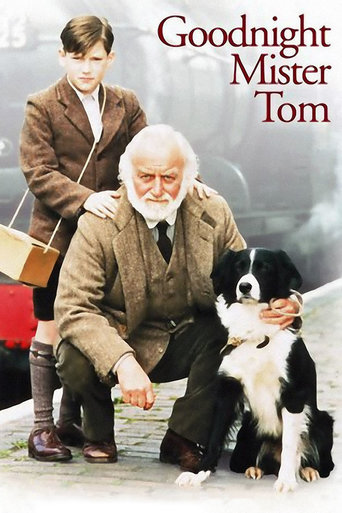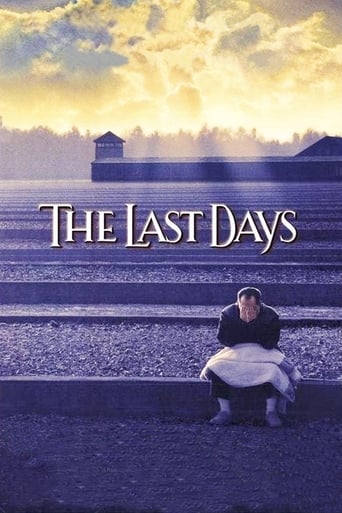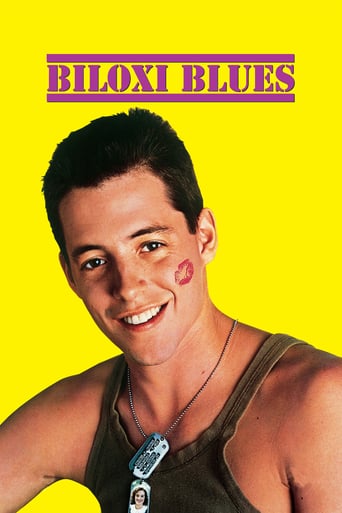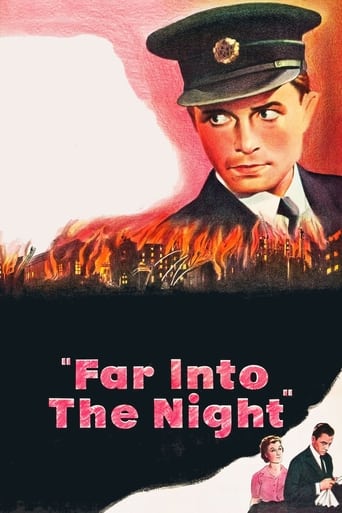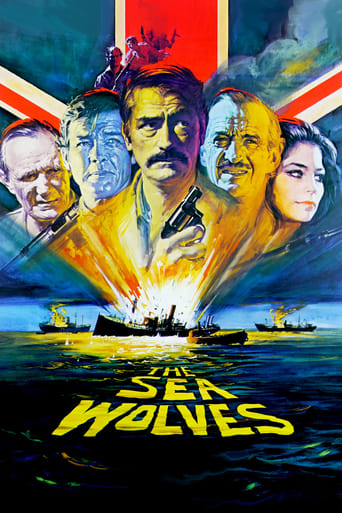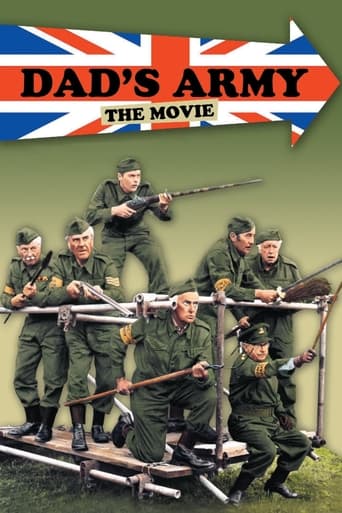Cross of Iron (1977)
It is 1943, and the German army—ravaged and demoralised—is hastily retreating from the Russian front. In the midst of the madness, conflict brews between the aristocratic yet ultimately pusillanimous Captain Stransky and the courageous Corporal Steiner. Stransky is the only man who believes that the Third Reich is still vastly superior to the Russian army. However, within his pompous persona lies a quivering coward who longs for the Iron Cross so that he can return to Berlin a hero. Steiner, on the other hand is cynical, defiantly non-conformist and more concerned with the safety of his own men rather than the horde of military decorations offered to him by his superiors.
Watch Trailer
Cast


Similar titles
Reviews
Great visuals, story delivers no surprises
Excellent, Without a doubt!!
Did you people see the same film I saw?
All of these films share one commonality, that being a kind of emotional center that humanizes a cast of monsters.
One of the all-time classics of western cinema, Sam Peckinpah (The Wild Bunch, Straw Dogs, Pat Garrett & Billy the Kid) proved a huge feat of filmmaking strength with this gruelling and sadistic wartime drama pitting Nazi Germany against Russia on the Eastern Front! No stranger to controversy, Peckinpah masterfully handled both beasts on the frontline while coaxing an almost Shakespearean feel out of the story pitting not only army versus army but a Captain against his Lieutenant.The hard-nosed but effective Lt. Steiner (James Coburn), commands a loyal unit of rogues against a marauding enemy as Germany inevitably fails to occupy the East. He not only has the respect and friendship of the men he fights with, but even the Colonel (James Mason) believes that his kind may be Germany's only hope.His new commanding officer, Captain Stransky (Maximillian Schell) however - a highly educated and proud officer with the kind of superiority complex that one could associate only with a Nazi officer - quickly puts the situation further at odds with his dislike of Steiner.As the barrage of infantry and artillery against the German line intensifies and costs more than any man is able to take, their rivalry comes to a head through an epic war in every sense.Cross of Iron is first and foremost very gory and one of the first true war movies of its kind to swap paintball grade bullet wounds for explosive exit wounds and authentic wartime injuries, to the point where it could almost be considered Grindhouse; considering its production values.Coburn takes the classic antihero archetype beyond Clint Eastwood and Lee Marvin, giving us a dirtier, more damaged frontman than had been seen before (and for some time after). Whereas Schell is deliberately cold, proper and clean cut as the kind of German we really love to hate. But he too goes beyond the stereotypical.The support cast is brilliant and not just James Mason and David Warner as one would expect. Cross of Iron sports actual Germans playing Germans and are committed to creating stand-out characters that we do grow attached to.What we end up with may be somewhat expected, but there is plenty you won't see coming and Cross of Iron sports anti-war messages of a different nature to that of what you may be used to. In fact, despite it's dated production values, it's totally on target.Cross of Iron is one of the essentials of war film!
This is the first time I have, eager to 'know the enemy', not given a damn about the feud with the 'Axis' warriors of the World War II and have watched a film — regarding the position of the opposing force. What affected my choice, was, perhaps, the current situation, when, with the outbreak of the most recent war, I have been getting more and more uneasy about the thought, that the previous war was, in fact, far less unambiguous than the banal cliché 'Great Partiotic War', what we call it in Russia meaning homespun truth: 'we had been under attack — so we stroke back'. In actual fact, the USSR just certainly participated in the most awful war of all time. And that was participation to full capacity, our land was lucky to have so much human and economic resources, that, paying little attention to casualties and even speaking about colossal casualties need with a plump 'YES'... In the both world wars' history there were neither the right nor the wrong, neither the defenders nor the aggressors, neither the conscientious nor the deceitful. What there were, was just overcrowded battlefields and tremendous massacres due to the super-powerful military blocs' confrontation. And Germany was against all. It is not just German propaganda! Because saying that Japan and Italy sufficiently helped the Reich to achieve, by 1942, impressing spreading over the larger part of Europe, from Norway, France, and Greece, eastwards to the Lower Volga, — would be, quite sure, a hypocrisy. The Germans (there is no denying their fantastic fighting spirit and self-denial), under their Führer, Hitler, an Austrian himself actually, would indeed approach the Superpower status — only to be eventually pulled up and occupied by the wartime allies whose coalition, however, dissolved shortly after. The former have gone down in history as the monstrous evil fanatics, tormentors of peoples, and what of it? image of the enemy (especially of the shattered one) is likely to be demonised, and since the war was the most monstrous one, the demonisation was likely to reach the unparalleled extent. Jews, alas, have always been destroyed; antisemitism has still not ceased to exist. Shootings of civilian population and property destruction by advancing or retreating troops used to take place on any war and still does. When the war was over, the German and the Japanese rulers were dismissed and they were in the dock, accused of 'war crimes', but that was because the winner is always right and judges the beaten. Just a decorum of diplomacy. I even wonder why so many people still believe that was really a holy violence and a fair trial. And the current war, Donbass war, must wipe out the rose-coloured view of victory in the anti-Nazi war, as Nazism then was not a simple and unambiguous enemy, and there was no deathnail for it then. Today, some heavy-metal songs from the turn of the 1980s and 1990s are extremely topical again. As they describe bombing; warn that just as decades ago the Nazi Germany recarved the map of Europe, sparks of crematory fire of death camps are still visible; narrate the stories of hirelings of dirty tricks and monkey business. In fact, I, just a teenager that time, foresaw that revanchism, that came up in our pluralism age together with any other 'dissenting opinions', would lead to no good... But the Germans are just the ones who least of all stick to their demands in this regard! And the world is lucky to have SUCH Germans today, as otherwise, it might be a World War III with once more 'Germany against all' - and doomsday! However, Germany at the moment needs revanchism like one needs a hole in the head. Who eulogise it, are rulers of Eastern European states as it is a safe bet of giving up everything that connects with Russia, the parent state, and that is none of Germany's business. But how are we Russians going to solve the current pending problem, — that is the challenge. We would be lucky to have the majority once again, as in 1941, been convinced of being victorious: 'victors need never explain'... But what if not?..Having grounded the significance and topicality of this film, I am going to describe its advantages. This old film measures itself against many modern war films as well as it is still thrilling-to-watch. Almost no 'tall tale' but striking accent when meeting almost any Russian characters (bit parts). Why not involve Russians in auding. There have always been millions of those abroad ('Iron Curtain' is also just a cliché shown to the best advantage by certain circle, isn't it?). The female unit episode is certainly a shocksploitation, but there is a black sheep in every flock. And why, the Western filmmakers showed the Soviet female warrior not just as an abusive woman who immediately laid her arms down and gave in to the Germans. Instead, this composite character is shown as a female hero who combats the enemy many times superior, ready to sell her life and honour dearly...But the Germans are main characters here. They are neither protagonists here, nor those who are praised and white-washed. We see them such as they must have been on that war. Soviet posters showed them next to trench rats with arms round each other, and quite similar to each other, and that was not just propaganda. No military bearing in the war: it is at the parade where a fighter is clean-shaven, and wears full-dress uniform, and is in blanched boots! While in trenches, even the question of insignia is often of no importance. (Because an officer who keeps subordination too zealously takes chances to have his own soldiers got rid of him). So some exclusively brave Wehrmacht soldiers would wear trophy Red Army garments, give higher commanders a piece of mind, pardon Soviet captives and even exchange defeatist views, wishing Hitler himself 'kaputt'!
Crap. Dynamite and more dynamite, but no real drama. For those who believe that war is like a western, here are their heroes. But war is not. And in this film there is no single historical reference.Does knowing handle explosives to give more "drama" to a movie entitled to replace an effective war story? Why this film is - supposedly- set in Russia during WWII? The filmmakers have simply sought excuses to prove they are capable of using more dynamite that has been used in any other movie.And the drama course is simply stupid, if not entirely child. Admittedly Maximilian Shell makes a very good comic role as the Nazi general in search of his iron cross. But the problem is that the film is not intended to be a comedy. He always tough Coburn, meanwhile, leaves much to be desired as ever when it comes to acting variations. Mason, meanwhile, does a good job in comedy. That's all.
Sam Peckinpah was known for the display of violence in his movies, but since then directors like Tarentino set the new standard. So what worked in the 70s does not necessarily work now. What remains is a movie to be judged on its message and on its acting.The movie is about the personal fight between a 'rusty' soldier and an upper class officer. The soldier does the fighting, the officer is only there to get his decoration, because he can't bear the humiliation to go back to his entourage in Germany without one. This collision between interests is the theme of this movie. It is an interesting theme but the movie is only partly able to display it. The story is fragmented, some events hardly fit into the movie. The end is very sudden, it seems no one knew how to finish the movie, or maybe the budget was gone. Anyway, it seems rushed. But that is not the biggest problem. Acting is. Good acting should make you forget you are looking at an actor. Instead the actor must be able to make you believe you are looking at the character he plays. High ranking stars James Coburn, Maximillian Schell and James Mason were chosen for principal parts. James Coburn is not really an actor, he is only able to show his face and it depends on the movie whether you accept him in his role. In this entire movie he remains an out of place James Coburn. James Mason is a good actor but profoundly British and his part is to small to see him as the German he is playing. Schell is the only one who is able to make you forget he is a star, and merges with his character in this story. So the movie fails primarily on the acting and secondly on the flow of the story. This movie seems to be out of date, maybe it was good in its time but it misses the extra to still be attractive. That is too bad because the theme is interesting.

